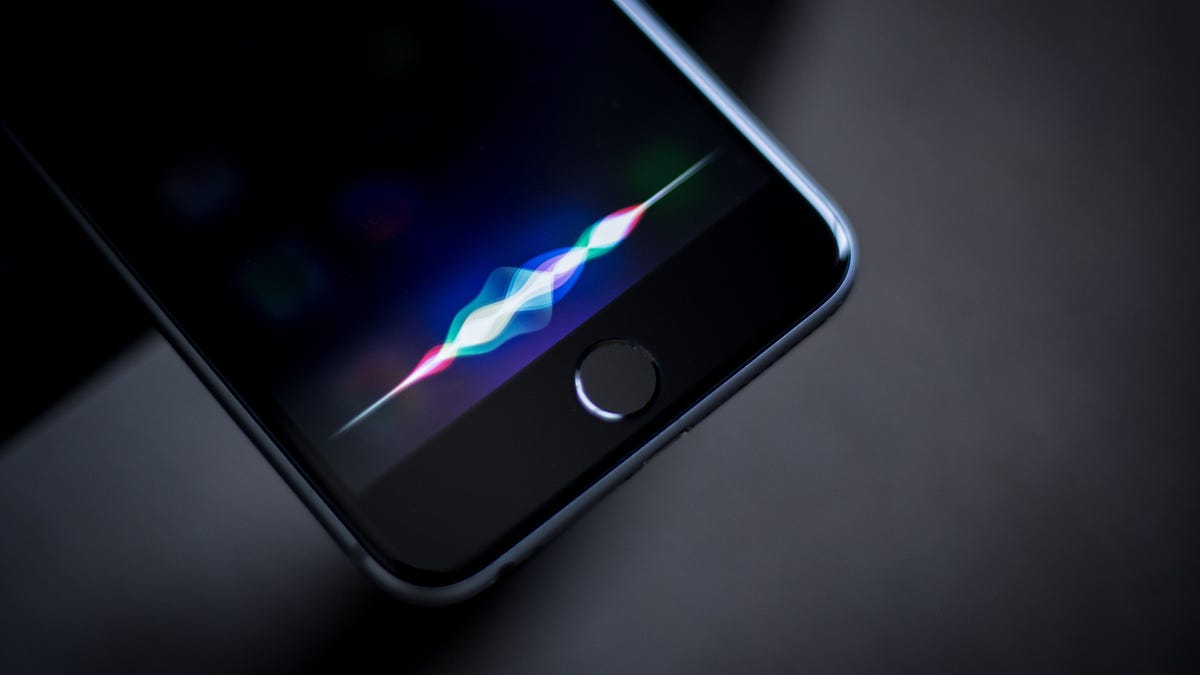Biggest iOS 10 letdown: Siri doesn't go far enough
Apple announced only one new change to its Siri assistant, and it's not enough to close the gap.

Vocally activating your phone, your watch, your car and your home is where the future is headed. And the question of who has the best "voice-triggered assistant" -- or artificial intelligence platform -- is an important one.
Whoever does it best might not necessarily win, but whoever does it worse will surely lose.
Google, Apple, Amazon and Microsoft are all in the game with Google Assistant, Siri, Alexa and Cortana, respectively. These assistants share some basic capabilities that at this point feel worn thin, like telling you the weather, or, more whimsically, if you need an umbrella. Instead, it's what they all do differently, deftly and conveniently that counts.
After Google unveiled upcoming changes to its search assistant last month, it shot far ahead of Siri. The enhancements that Apple announced at its own developer conference this week barely help close the gap on what it can do, and fail to address Siri's most glaring problem: its inability to reliably understand you and consistently give you all you need.
Siri's one and only announced change
Apple announced only a single change to Siri in iOS 10, Apple's software update coming this fall, plus it highlighted one that already existed, and added one enhancement for Mac that will maybe one day work on the iPhone.
- New: It'll support third-party apps in iOS 10, which means you can say something like "Siri, send a What's App to Zack: "Hey, cuz. Happy birthday" -- and it'll compose a What's App message for you to approve.
- Old functionality made new again: When Apple showed off the new Home app for HomeKit-compatible smart devices, it demonstrated how you can voice-trigger Siri to lock the doors, turn off the lights and turn on the fan next to your bed all by saying "Goodnight, Siri." It may seem like a new addition, but has been around since 2015.
- For Mac: In MacOS Sierra, where Siri is brand-new, you can ask for documents within a certain date range ("show me documents from 2014 to today") and then flow into a follow-up request ("let's see yesterday's"). Apple didn't demonstrate similar smarts for iOS 10, but we can only hope that's coming.
Meanwhile, Google Assistant for Android N will:
- Pick up on contextual cues so you can ask "who designed this?" while standing in front of a tourist attraction without saying anything more
- Ask follow-up questions without more context (like Siri in MacOS Sierra)
- Offer you tickets to movies you look up and reservations to restaurants you search
Here's where Siri misses the boat
While technological advances in digital assistants are useful for making our lives even easier, none of this matters if the program in question falters at its most elemental task: hearing you correctly and giving you the information you need, in the best way possible.
Time and again, I ask Siri (on iOS 9) a request or question. It nails weather every time, but often doesn't compute the name of local businesses or give me the kind of answer I'm looking for. Sometimes, Siri returns a result that's correct, but Google's response is so much richer.
While Siri technically answered my question, R, Google Now answered my question two different ways and gives me tools to quickly explore more.
In one recent example, I asked both Siri on iOS 9 and Google Now on Android 6.0 (the most recent before Android N this fall) to tell me when the Eiffel Tower was built. Siri provided a paragraph of information, but Google went the extra mile to read me the answer, show the date in an easy-to-read card, and give me extra links to follow -- in its search app -- so that I could keep sliding down the rabbit hole of inquiry if I wanted.
Part of the problem, as I've written before and will no doubt write again, is that Google's assistant draws from the same search database that put Google on the map, while Apple uses a mixture of Wikipedia, Bing and Wolfram Alpha (along with sources like Shazam, MLB, Yahoo Stocks, NBA and Rotten Tomatoes). Apple may also be leery of borrowing too many of Google's visual ideas; the necessity to distinguish itself from powerful rivals is key to Apple's own reputation. The bottom line is: Google consistently gives me more complete information.
Still, as much as I'd love to see Apple outfit Siri will more and more skills, perhaps Apple's wisest move between now and autumn when iOS 10 comes to phones is to take a good, hard look at Siri's listening skills. When it comes to Siri, Apple should get back to the basics of flawlessly understanding requests and presenting the right information in an effortless way.

